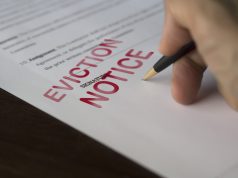
On Saturday, March 6, hundreds of CU Boulder students played part in a maskless, bacchanal spring celebration in the midst of a pandemic that has killed more than 2.5 million people worldwide. By night’s end the ground was littered with broken glass and debris, Isabella Sackheim’s car was tipped over and destroyed, a fire truck was ridden and pummeled with cans and bottles, the SWAT team arrived, tear gas was deployed, and three police officers were injured. I’ve lived in Boulder County almost exclusively since 2001 and am a CU alumnus myself. These events hit close to home quite literally.
In fact, I was even witness to a similar event back in 2001 during my freshman year. After a particularly good or bad (who can remember?) football game, The Hill was swarmed by students setting fires in newspaper boxes, throwing objects and, yes, attempting to tip a car. The police came out in full riot gear, deployed gas and marched the students back onto campus firing rubber bullets and pepper bombs along the way. This is nothing new to CU or University Hill. Couches and upholstered furniture were banned from porches almost 20 years ago because students were so frequently setting them on fire.
But something about Saturday feels different. There have been comments online equating the violence that erupted in Boulder to the Black Lives Matter protests that took place last summer. If you haven’t seen these, they’re similar to the comparisons that were made to the siege on the Capitol building on Jan. 6; the type of whataboutism that’s become prevalent in social media forums. Clearly, there’s nothing that can equate the protest of generations of systemic racism and inequality to a frat party allowed to get out of hand. It is, in fact, the contrast that really hit me.
The sort of behavior that was on display Saturday was only possible because of rich, white privilege. I find it doubtful that any of its major participants had any thought that there might be consequences to their actions. And here I’m not just talking about the consequences their actions have on others; the destruction of property, the closure of businesses, etc., but more importantly (to this point) the consequences to themselves. How could they be arrested? How could they be kicked out of school? Privilege is a detriment to both those with and without it (though undeniably much more so to those without). There’s a major difference between taking to the streets because you can be arrested and taking to the streets just because you can. There’s a difference between living your entire life knowing you can be harassed, arrested or killed because of how you look and spending a year with a mask on your face while you’re in public. The loudest cries for freedom are from oppressors clinging to their privilege.
Boulder is one of the most liberal cities in our country and yet it remains one of the least diverse. The “Boulder Bubble” is often referenced in a joking manner, but it’s a bubble that continues to keep a large segment of this country on the outside. Right here, at the very heart of liberal America, we had a violent, maskless mob of white men take over multiple blocks and chase off the police. Lambasting others while this city continues to be a huge part of the problem is unacceptable. But it’s also representative of how a lot of us behave these days.
It’s time to take a look inward, myself included. I mean, what have we been doing this whole time? It can feel like there’s no room in the middle, no time for nuance. It’s all become talking points fed to us and flung violently at other people we’ve never met. But we’ve created this reality. The pandemic was an amazing opportunity to come together, not only as a nation but as a planet. Instead we’re more divided than ever. And over what? Wearing a mask? It all seems as meaningless as whatever brought about the violence of Saturday.
Long after the sun had set and the tear gas had dissipated, a handful of students wandered about in the aftermath picking up trash, some coming all the way from Highland’s Ranch. This mess might not be entirely ours, but I hope someday we can come together to clean it up.
Gregory Nelson is a Colorado native who graduated from CU Boulder with a BA in Humanities. He currently lives in Lafayette.
This opinion column does not necessarily reflect the views of Boulder Weekly.














